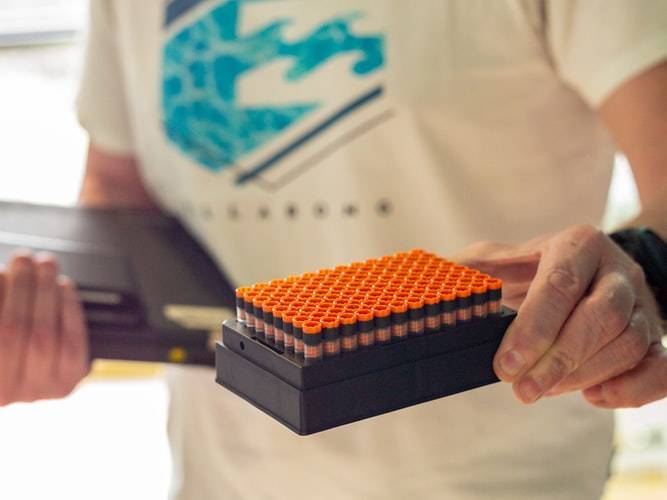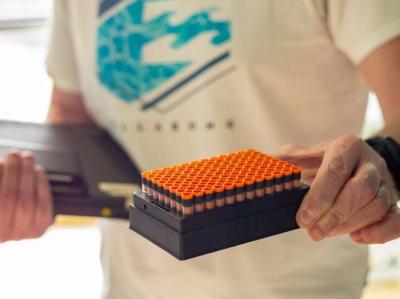The British intelligence agency has made a new surprise regarding the possibility that the coronavirus leaked from a laboratory. Michael Ryan, an Irish epidemiological expert who has overseen the World Health Organization's emergency health program for years, stated that "discovering the origin of the novel coronavirus requires a long period of research, analysis, and data comparison, if scientists ever manage to determine this origin." Ryan made these comments in a special interview with "Asharq Al-Awsat" yesterday morning (Saturday) in Geneva, on the sidelines of the World Health Assembly. He said, "We hope that the media, countries, and all parties interested in this matter separate political interests and considerations from the purely scientific issue, which is the only way that helps us uncover the facts and establish the solid evidence we will build upon for our preparedness and response to future crises and pandemics."
When asked about the organization's position regarding the official request submitted by the United States last Wednesday to open a second phase of independent investigations into the virus's origin, Ryan said, "Countries are free in their positions, statements, and adopting whichever hypothesis they choose regarding the origin of the virus, but we are an international governmental organization that operates based on evidence and scientific methods and we act according to the directives of member states. I doubt that those who propose hypotheses and theories have reviewed the reports, recommendations, and appendices prepared by the mission of experts commissioned by the organization to investigate the origin of the pandemic, and I invite everyone to read them carefully."
#### Circle of Political Maneuvering
Ryan added, "The organization's experts are currently working on studying these reports and recommendations to determine the course of future research and investigations, but we need to remove this issue from the circle of political maneuvering and allow scientists to conduct their work with impartiality and objectivity to draw lessons that help us avoid making the same mistakes when facing global health crises and other pandemics in the future." He affirmed in his remarks to "Asharq Al-Awsat" that the organization "will remain in constant communication with member states for guidance based on recommendations to determine the next stages in establishing the virus's origin, but this requires numerous studies and missions before reaching a definitive conclusion." He added, "What is important now is to tackle the pandemic and control it, steering it away from the game of political interests that delay achieving these goals."
The World Health Organization celebrated on Friday evening the anniversary of the launch of the C-TAP program to share knowledge and patents for treatments and vaccines against the novel coronavirus, which aims to facilitate access for developing and poor countries to the necessary health and medical supplies to combat the pandemic. The organization reported that dozens of countries and companies have joined this program so far, pledging to share knowledge and patents without exclusive conditions.
#### Laboratory Virus
This comes as the newspaper "The Times" reported that British intelligence now considers it "possible" that the coronavirus "SARS-CoV-2" leaked from a laboratory. The newspaper, citing unnamed sources, stated that Western intelligence agencies, including those of Britain, previously thought that the hypothesis of the coronavirus leak was weak, but this assessment has now been reviewed. Additionally, the "Daily Mail" reported yesterday that British professor Angus Dalgleish and Norwegian virologist Berger Sorensen announced in a study that they found evidence proving the laboratory origin of the coronavirus. The experts stated in their study that they discovered several characteristics of the coronavirus that indicate the existence of "targeted manipulation."
In March, the World Health Organization published the full version of a report from an international group of experts who visited Wuhan, China, to determine the virus’s origin, in which they described the likelihood of the virus leaking from a laboratory as "unlikely." The report also indicated that the new type of coronavirus likely transferred to humans from bats through another animal.




